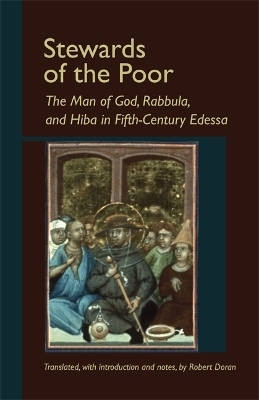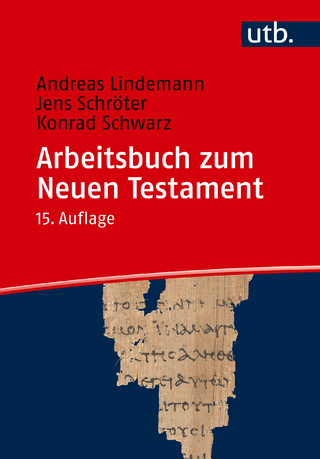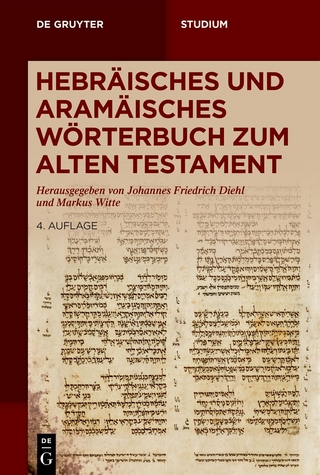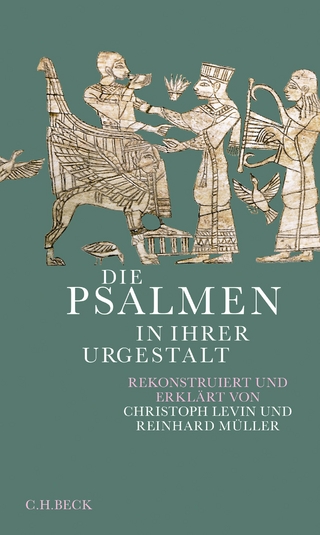
Stewards of the Poor
The Man of God, Rabbula, and Hiba in Fifth-Century Edessa
Seiten
2006
Liturgical Press (Verlag)
978-0-87907-308-4 (ISBN)
Liturgical Press (Verlag)
978-0-87907-308-4 (ISBN)
The Man of God, Rabbula, and Hiba in Fifth-Century Edessa
Three remarkable fifth-century Christians of the Syrian city of Edessa are profiled here: one a pauper by choice, and two bishops of opposing theological opinions.
• The 'Man of God', born to rank and privilege, identified completely with the poor, spending his days fasting and praying constantly. His quiet holiness deeply influenced.
• Rabbula, convert, monk and bishop, who championed the poor and battled injustice, but dealt harshly with those who held what he considered unorthodox beliefs. During the christological controversies
surrounding Nestorius, he supported Cyril of Alexandria and exiled.
• Hiba, a supporter of the school of Antioch and an advocate of Theodore of Mopsuestia and Nestorius. He regarded Rabbula as a tyrant, yet, in the turbulent theological climate of the day, succeeded him as
bishop of Edessa, only to reap the fury of the cyrillian party.
Two undercurrents of fifth-century Christanity ebb and flow in these documents. The Life of Hiba reflects the intensity of the Nestorian-Cyrillian controversy, while The Life of the Man of God and The Life of Rabbula emphasize as the chief christian duty of the clergy the care of the poor. Whatever the Church has, it hold only as a steward for the poor.
Three remarkable fifth-century Christians of the Syrian city of Edessa are profiled here: one a pauper by choice, and two bishops of opposing theological opinions.
• The 'Man of God', born to rank and privilege, identified completely with the poor, spending his days fasting and praying constantly. His quiet holiness deeply influenced.
• Rabbula, convert, monk and bishop, who championed the poor and battled injustice, but dealt harshly with those who held what he considered unorthodox beliefs. During the christological controversies
surrounding Nestorius, he supported Cyril of Alexandria and exiled.
• Hiba, a supporter of the school of Antioch and an advocate of Theodore of Mopsuestia and Nestorius. He regarded Rabbula as a tyrant, yet, in the turbulent theological climate of the day, succeeded him as
bishop of Edessa, only to reap the fury of the cyrillian party.
Two undercurrents of fifth-century Christanity ebb and flow in these documents. The Life of Hiba reflects the intensity of the Nestorian-Cyrillian controversy, while The Life of the Man of God and The Life of Rabbula emphasize as the chief christian duty of the clergy the care of the poor. Whatever the Church has, it hold only as a steward for the poor.
TABLE OF CONTENTS
Acknowledgments vii
Abbreviations ix
Edessa and Syriac Christianity xi
The Man of God
The Story of the Man of God 3
The Man of God: The Original Syriac Life 17
The Man of God: Expanded Syriac Version 27
The Life and Lifestyle of the Man of God, Alexius:
Greek Version 35
Rabbula
Rabbula of Edessa 41
The Heroic Deeds of Mar Rabbula 65
Hiba
Bishop Hiba, Successor to Rabbula 109
The Acts of the Second Council as Ephesus in 449 ce 133
Bibliography 189
Scripture Index 197
General Index 199
Index of Named Religious Personnel in Edessa 203
| Reihe/Serie | Cistercian Studies Series |
|---|---|
| Übersetzer | Robert Doran |
| Verlagsort | Collegeville, MN |
| Sprache | englisch |
| Maße | 140 x 216 mm |
| Gewicht | 284 g |
| Themenwelt | Religion / Theologie ► Christentum ► Bibelausgaben / Bibelkommentare |
| ISBN-10 | 0-87907-308-X / 087907308X |
| ISBN-13 | 978-0-87907-308-4 / 9780879073084 |
| Zustand | Neuware |
| Informationen gemäß Produktsicherheitsverordnung (GPSR) | |
| Haben Sie eine Frage zum Produkt? |
Mehr entdecken
aus dem Bereich
aus dem Bereich
Buch | Softcover (2021)
De Gruyter (Verlag)
29,95 €


